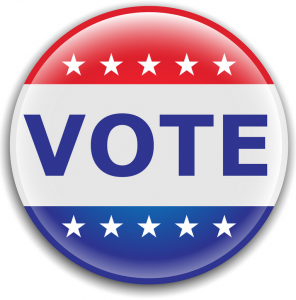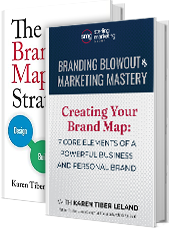Summary:
The article delves into the personal branding strategies of the Democratic presidential candidates, offering insights applicable to business branding. It highlights Hillary Clinton’s consistent focus on her goals, Martin O’Malley’s relatable and accessible image, and Bernie Sanders’ appeal to fairness and basic values. By analyzing their approaches, the article provides three valuable personal branding lessons for business professionals.

In last week’s blog post I wrote about the personal branding of the Republican Candidates. This past Saturday the Democratic presidential candidates followed suit, and I paid attention to how each of their personal brands played out.
Here are 3 personal branding lessons business people can learn from them.
Hillary Clinton: Keep Your Eyes On the Prize
Shortly after Bill Clinton had been elected president, I met two women at a party who had been college school chums of then Hillary Rodham. They were keen to tell me how even then, Clinton’s friends would say, “She will be the first woman president someday.” Her brand was solidly in place even at University, and she has not stopped since.
In a post-debate CNN focus group, when asked which candidate they thought had the experience to deal with the current security issues facing the US, all hands went up for Clinton. Love her or hate her, Mrs. Clinton has built her personal brand consistently — for decades. Through thick and thin, up and down, she has kept her attention on her goal, pivoted where necessary and kept her personal branding in alignment.
Martin O’Malley: Be Smart and Accessible
Of the three leading Democratic candidates, O’Malley’s personal brand comes across as the most ‘everyman.’ To point: According to Forbes, O’Malley is the poorest of the presidential candidates. He has a net worth of almost zero and a mere $800,000 in his bank account.
To top it off, O’Malley has been hitting the campaign trail with rolled-up sleeves and (literally) strumming a guitar. On a recent appearance on The View, he led the hosts in a sing-along to the Taylor Swift song “Bad Blood.” Just listening to some of his sound bites from Saturday’s debate shows his man-of-the-people positioning:
- “You will never hear this from that immigrant-bashing carnival barker Donald Trump.”
- “Our symbol is the Statue of Liberty, not a barbed-wire fence.”
- “A woman told me my son is not a pair of boots on the ground.”
Yep, he’s folksy alright, but he’s also clearly someone smart and competent — and that’s his winning combination: a relatable guy. You know, someone you “would like to have a beer with,” and at the same time trust to make executive decisions.
Bernie Sanders: Get Back to Basics
A champion of economic and social fairness, Sanders has overcome his self-proclaimed Socialist label by sounding less like a strident revolutionary and more like your slightly eccentric (but sweet) Uncle Syd, the one who always taught you right from wrong. Consider some of his comments from Saturday night:
- “We pay for this by demanding that the wealthiest people and largest corporations, who have gotten away with murder for years, start paying their fair share.”
- “We bailed out Wall Street. It’s their time to bail out the middle class, help our kids to go to college tuition free.”
His personal brand of supporting those not at the top of the economic (or social) food chain is resonating with young people in particular. A recent poll from McClatchy-Marist reported that 58% of 18- to 29-year-olds are leaning toward Sanders and away from Clinton.
At a time when many voters — Democrats and Republicans — don’t trust government, Sanders’ personal brand of back-to-basics “do what’s right and fair” may be just what speaks to the people.
This article is copyrighted by Karen Leland and cannot be reprinted in any form, electronic or otherwise, without the express written permission of Karen Leland.
Karen Leland is President of Sterling Marketing Group, a branding and marketing strategy and implementation firm. She works with individuals, businesses and teams to enhance their business and personal brands. Her clients include LinkedIn, American Express, Apple, Marriott Hotels and others. Her ninth book, The Brand Mapping Strategy: Design, Build and Accelerate Your Brand, is due out from Entrepreneur Press in May of 2016.
